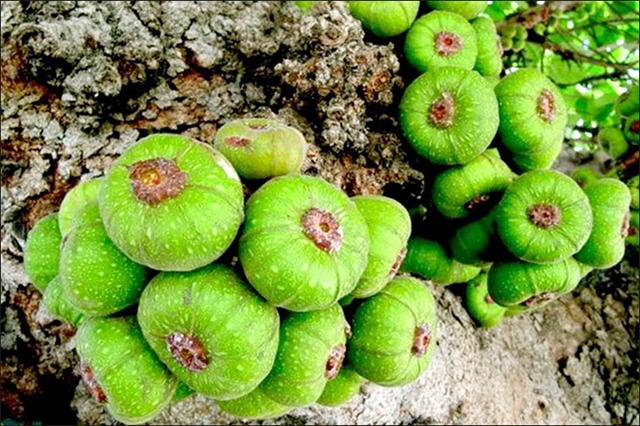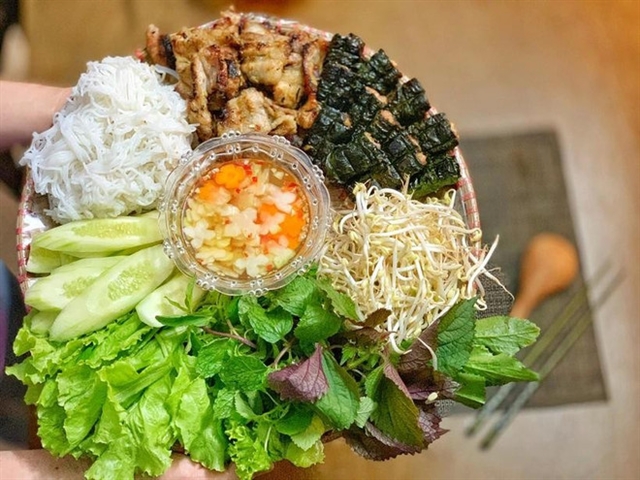 Life & Style
Life & Style

 |
| Bún chả (vermicelli with grilled pork meatballs). — VNA/VNS Photo |
HÀ NỘI — Hà Nội, with its diverse culinary treasures built on a thousand-year cultural foundation, has transformed cuisine into a part of the cultural industry, with various measures being taken to promote its brand and elevate the status of the capital city's cuisine.
Abundant choices
Hà Nội offers numerous culinary options. Phở (noodle soup) in Hoàn Kiếm District alone features many famous brands like phở Lý Quốc Sư, phở Thìn, phở Bát Đàn, phở Ấu Triệu, and phở Hàng Đồng. Beyond that is a long list of eateries serving bún chả (vermicelli with grilled pork meatballs), bún riêu (crab vermicelli soup), bún ốc (snail vermicelli soup), and bún thang (vermicelli soup with chicken, pork and fried egg, mushrooms and dried turnip).
There are also a large number of food streets in the city, including three professionally organised venues at Tống Duy Tân in Hoàn Kiếm District, Ngũ Xá in Ba Đình Distric, and newly-estalbished Nguyễn Văn Tuyết in Đống Đa District. Additionally, many streets and alleys have naturally evolved into food destinations, including Phất Lộc, Đồng Xuân, Tràng Tiền, Trung Yên, Hòe Nhai, and Ao Sen.
This rich culinary heritage stems from a millennium of culture and Hà Nội's position as a cultural exchange centre of the region, the nation and the world. Hà Nội's specialties like phở, bún, nem (spring roll), and cốm (young sticky rice) are well-known dishes. More importantly, its appeal lies not just in the food itself but in its food culture - from preparation methods to the dining experience.
Last year, TripAdvisor recognised Hà Nội among the top 15 cities with the world's most appealing cuisines, on par with Naples (Italy), Athens (Egypt), Barcelona (Spain), Paris (France), Bangkok (Thailand), and Kyoto (Japan).
In addition, the World Culinary Awards honoured Hà Nội in two categories, including the World's Leading Culinary Destination and Asia's Leading Culinary Destination.
According to the Strategy on Việt Nam’s Cultural Industry Development by 2020, with a vision to 2030, approved by the Prime Minister in 2016, the cultural industry comprises 12 different aspects. However, in the capital city’s resolution on cultural industry development by 2025, with a vision to 2030 and an orientation to 2045, the municipal Party Committee added cuisine as the 13th category in its cultural industry. This represents a breakthrough in thinking about exploiting culinary resource values.
Affirming position, elevating brand
The Hoàn Kiếm District People's Committee recently completed a project to renovate Tống Duy Tân – Hàng Bông Alley food street, with the highlight of the bronze statue featuring a phở seller in the early 20th century by artisan Trần Quốc Thịnh. The street is decorated with lanterns, and its entrance gate is inspired by ancient architecture. These enhancements add value to Tống Duy Tân Food Street, already famous as Hà Nội's oldest food street with many renowned establishments.
Besides infrastructure improvements, Hoàn Kiếm has launched the Hoàn Kiếm Culinary App on iOS and Android, helping foodies search for dishes by category and order directly, while promoting commercial civilisation and ensuring food safety. This is just one of many activities Hà Nội has been carrying out to exploit and promote culinary resources.
Additionally, the capital regularly organises cuisine promotion events such as the West Lake Lotus Festival, Hà Nội Culinary Culture Festival, and Hà Nội Tourism Gift Festival. They not only introduce Hà Nội's culinary beauty but also showcase its elegance and sophistication in food preparation and appreciation.
Dr Đặng Phương Anh from the University of Social Sciences and Humanities suggested that when promoting Hà Nội cuisine and linking it with tourism development, attention should be paid to cultural spaces and the interaction between foodies and food creators.
Meanwhile, Assoc. Prof. Dr Nguyễn Thị Ánh Quyên from the Hà Nội University of Culture proposed Hà Nội develop a more specific strategy to promote culinary culture linked to the development of the cultural industry for its localities to follow. The city should also develop focused culinary tours and organise more international exchange events related to food culture.
Many experts also advised the capital to consider exporting specialty dishes on a larger scale to affirm its position and elevate its brand. - VNA/VNS




